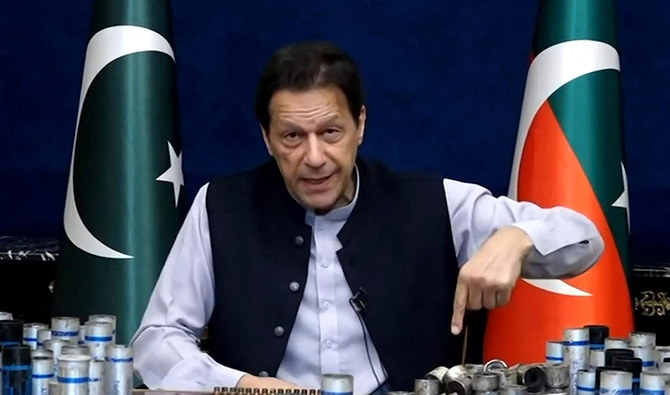ISLAMABAD: Former prime minister Imran Khan moved the Islamabad High Court on Friday to cancel non-bailable arrest warrants out for him in a case involving the sale of state gifts, as his supporters remained camped outside his residence in Lahore, vowing to prevent his possible arrest by police.
Police arrived on Tuesday outside Khan’s Zaman Park residence with an order to arrest him by a district court in Islamabad, unleashing two days of clashes with supporters who said they would not allow their leader to be taken into custody. While Khan alleges police brutality took place, the Punjab government says his supporters pelted stones and threw petrol bombs at law enforcers. Injuries have been reported on both sides.
On Wednesday evening, the Lahore High Court (LHC) halted the police operation to detain the ex-PM until 10am on Thursday, and then extended it till Friday morning. On Friday, the LHC heard the case again, and adjourned it until 3pm.
Yesterday, the district and sessions court dismissed a plea seeking the cancelation of the arrest warrant of the Pakistan Tehreek-e-Insaf (PTI) chairman in what is popularly called the Toshakhana case.
In a petition filed on Friday, Khan asked the IHC to set aside the district court’s order for his arrest and suspend the arrest warrants “till the final disposal of the petition,” so that he could appear before the trial court tomorrow, Saturday.
“The impugned order is harsh, unreasonable and not sustainable in law,” Khan’s IHC petition said.
The district court judge, Justice Zafar Iqbal, had issued the non-bailable arrest warrants following Khan’s repeated absence from previous hearings of the Toshakhana reference. Khan aides say he does not attend court hearings due to security threats.
On Friday, Khan’s lawyer Naeem Haider also submitted an application in the court of Justice Iqbal seeking security arrangements for his court appearance on Saturday.
In another petition in the Islamabad High Court, Khan’s legal team has said the federal authorities should be directed to “produce the information and record of all the cases registered against the petitioner [Imran Khan.]”
“It is further prayed that meanwhile the arrest of the petitioner may be subjected with the prior approval of this august court,” the petition said.
Meanwhile, in the Lahore High Court, the former prime minister’s legal team has filed a plea for protective bail in at least nine different cases. Since Khan’s ouster from power in April last year, as many as eighty cases have been registered against him, with the charges ranging from terrorism to blasphemy and sedition. Khan says the cases are politically motivated, which the government denies.
The LHC also adjourned the hearing until 3pm of a petition by PTI leader Chaudhry Fawad Hussain that the court’s bar on a police operation to arrest Khan from his residence be extended.
Legal experts said Khan would have to defend all the cases against him in the courts to prove he was being politically victimized.
“Khan’s opponents are making sure that he could be indicted in Toshakhana case on his appearance in the district court tomorrow,” senior lawyer Muhammad Ahmad Pansota told Arab News.
“Once he is indicted, the court may conclude the case quickly which may result in his conviction, and subsequent disqualification from holding a public office.”
















